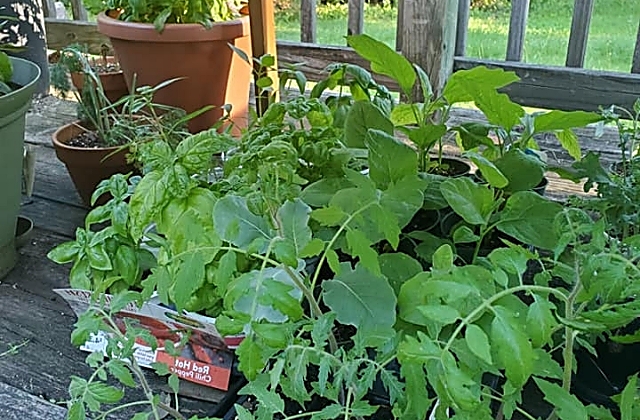Raised Herb Garden Planter Plans – How to Grow an Herb Garden Easily in Your Own Backyard

Are you having problems starting your own herb garden? You can easily overcome these difficulties by following some simple Rosemary and garlic herb gardening tips. The best time of the year to plant a herb garden is in spring, because it’s a good time for the soil to receive the needed nutrients. If you are starting a small garden, consider using a raised herb garden planter box. This type of container allows you to plant containers that closely resemble a small garden bed.
Choose pots that are large enough to hold a few sprigs of each herb you wish to grow. When you prepare your container, choose one that matches the plant you are growing. Some herbs do better in deeper containers, while others do well in shallow pots. Rosemary tends to do well in deep planters, so you might want to use a deeper-than-usual pot in this case.
When you are preparing the soil for your planting area, add at least four inches of organic mulch to the area. Mulch provides natural protection from deer, rabbits and other rodents, as well as providing insulation from summer heat. Herbs also need to have plenty of moisture in order to thrive. For this reason, mint is suited to be planted in sunny areas, and basil can take root in shady areas as well. Both herbs will thrive in pots planted in the same way, so plant them according to your herb gardening plan.
Once your containers are ready, plant your selected herbs in separate pots. If you are growing herbs that taste better than whole herbs, be careful not to over-plant them. Keep in mind that herbs do best in about twelve to sixteen inches of water per week. Herbs will also appreciate fertilizer at about two percent. If you are growing herbs as your family hobby, a raised container planter will be less work than a traditional garden. You can even use your raised herb garden planter as a fish tank!
The first step in planting your herb garden planters is to select which herbs you would like to grow. Do not forget to include the right climate for your plants, as well as sunlight and moisture. In addition, herbs should be planted according to the size of your container, since they will grow quickly in large pots. Keep in mind that your herbs will taste different if you transplant them from containers that are taller or wider than they are in smaller pots.
Your next step is to determine what herbs you want to grow. Choose herbs that have hardier roots and can survive in different kinds of soil and conditions. While some herbs like sunny conditions, others prefer the shade. Most herbs can survive in low-light plant pots, provided they are kept in containers with well-drained, well-humained plant pots. This means that you need to choose herbs with similar growing conditions and hardiness, so you will be able to keep them healthy even when your garden planter planters are shaded and kept in the shade during summer.
It is very important to plant your herbs in soil that your herbs can actually tolerate. Most herbs do not do well in clay-based soil and most herbs do not do well in extremely acidic soil. So, make sure to purchase pots that are made specifically for herbs and know which ones work best for your type of herbs. Once you have chosen and purchased your pots, remember to dilute the soil you bought with water before planting. This will ensure that your herbs have no difficulty growing in your container planters.
A raised herb garden can add a lot of interest to your kitchen or patio and it can be a rewarding hobby as well. If you get into it, however, you will find that it is not all that difficult to take care of your herb garden and raise the overall production of your herbs. Your family will love having fresh herbs at the dinner table every night and your friends will be impressed by your herb garden and the work you put into it!